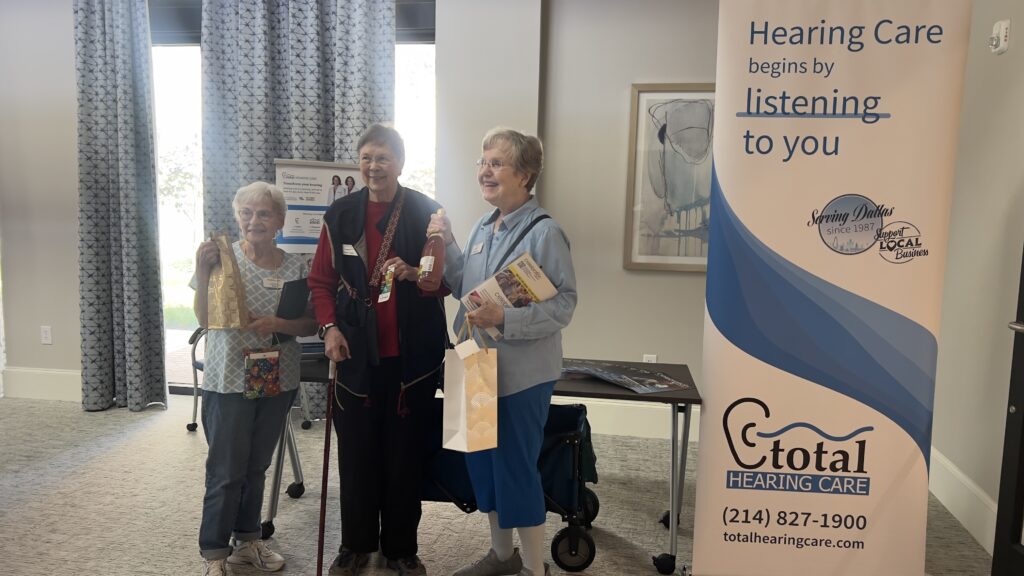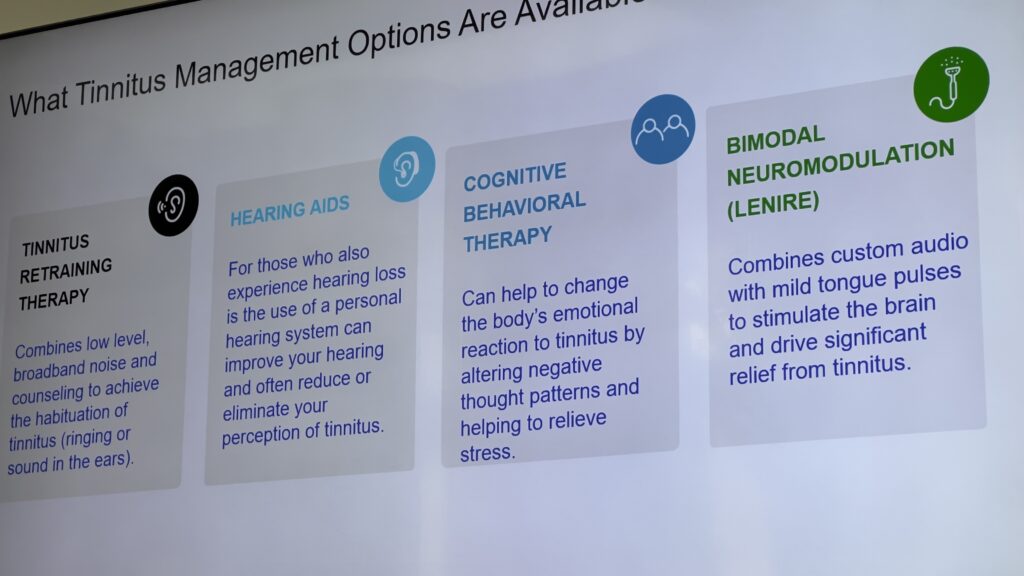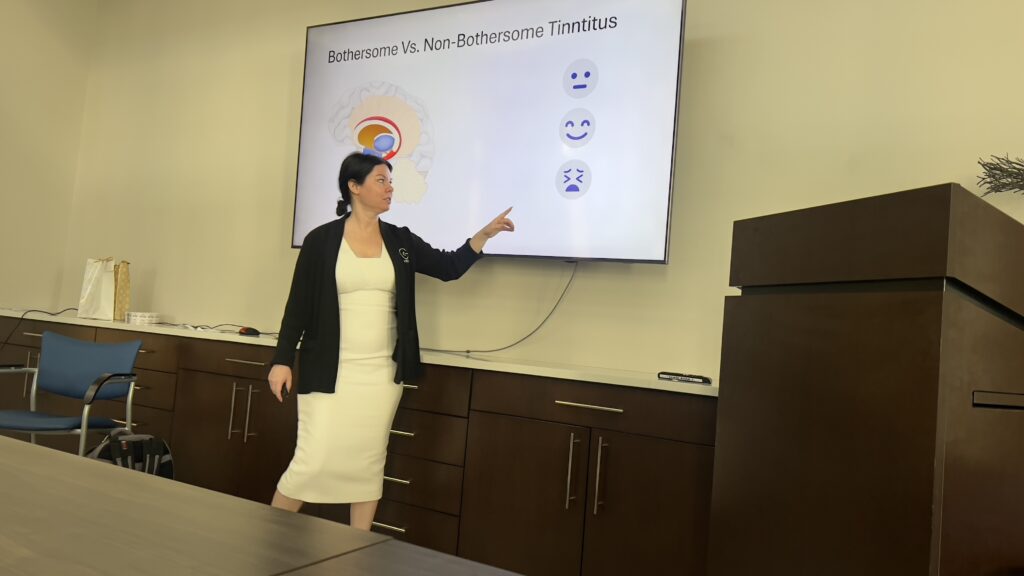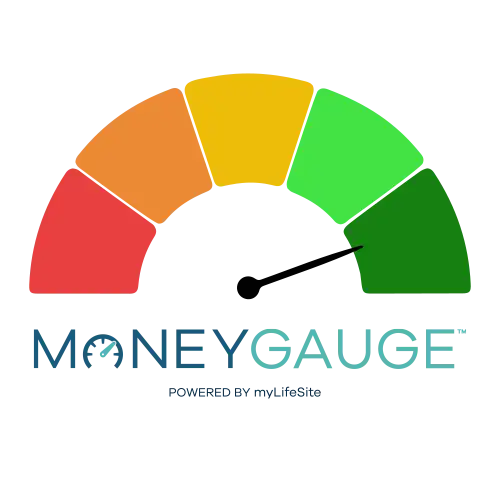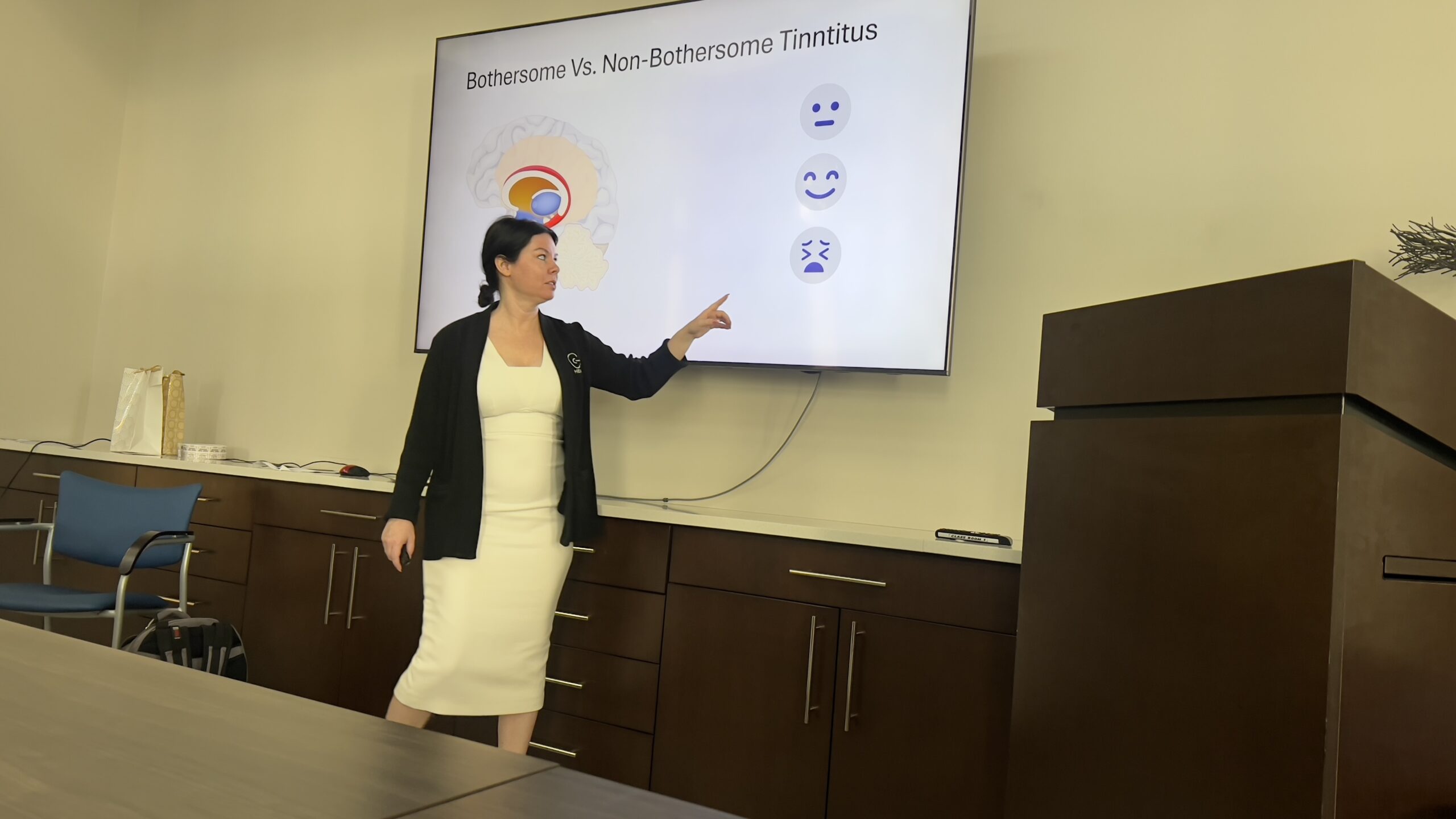Have you ever heard a ringing, buzzing, humming, whistling, hissing, roaring or the sound of a steam engine in your ears—and then realized there was no steam engine in sight? If so, you’re not alone – I’m right there with you!
Today I attended a fascinating presentation about hearing at Presbyterian Village North (PVN) focused on tinnitus and hyperacusis. I walked away with a deeper appreciation for both the science of hearing and the power of knowledge.
The seminar was hosted by Richard Garcia and Paige Gainey, Au.D., from Total Hearing Care, who see patients at the PVN Clinic the first Monday of every month. Seven residents joined me in PVN’s Classroom One for an hour of learning.
We started with the basics: how we hear. (Spoiler alert: tiny hair cells in our ears do a lot of heavy lifting.) When these cells are damaged—often from repeated exposure to loud sounds over time—hearing loss sets in. And with it, sometimes, comes tinnitus.
Now, if you think tinnitus is just “ringing in the ears,” think again. As Dr. Gainey described it, tinnitus can sound like a buzz, a hum, a whistle, a hiss, a roar, a repeated tune/song or even that high-pitched squeal your teapot makes when it’s ready—only it never turns off. But here’s the wild part: tinnitus is usually just a symptom of hearing loss and is often completely benign. Temporary, even. And get this—common medications like Tylenol and Aleve can actually bring it on or make it worse. Who knew?!?!
And don’t even get me started on the fine print of prescription labels. According to the Dr. Gainey, “hearing issues” is one of the most common side effects listed on most medications. So yes, your ears may be more drug-sensitive than your stomach.
But fear not—there’s hope! The Total Hearing Care duo walked us through tinnitus management options like retraining therapy, cognitive behavioral therapy, hearing aids and something fancy called bimodal neuromodulation (Lenire, for those of you who love a good techy word). And then we dove into hyperacusis, which is a heightened sensitivity to sound. If someone slams a cabinet and you feel like your ears are being assaulted—yep, that’s hyperacusis.
And if chewing, breathing, or pen-clicking drives you up the wall? Welcome to the wild world of misophonia. There’s treatment for that too, thankfully.
The session wrapped with some lifestyle tips, protective strategies and a few questions from residents (and me). It was a great reminder that taking care of our hearing health is not only important, but also something we can talk about openly. It affects all ages of people and I was happy to be able to be surrounded by people who understand the challenges I’m facing.
If you ever find yourself humming along to a tune no one else can hear—come join us at the next seminar. You might just learn something ear-resistible. Stay tuned for more posts as I continue my journey to better, buzz-free hearing!
Total Hearing Care holds office hours beginning at 9 A.M. the first Monday of each month.
Make plans to attend the next seminar about “Cognition and Balance” on August 13, 2025 at 10 A.M.
